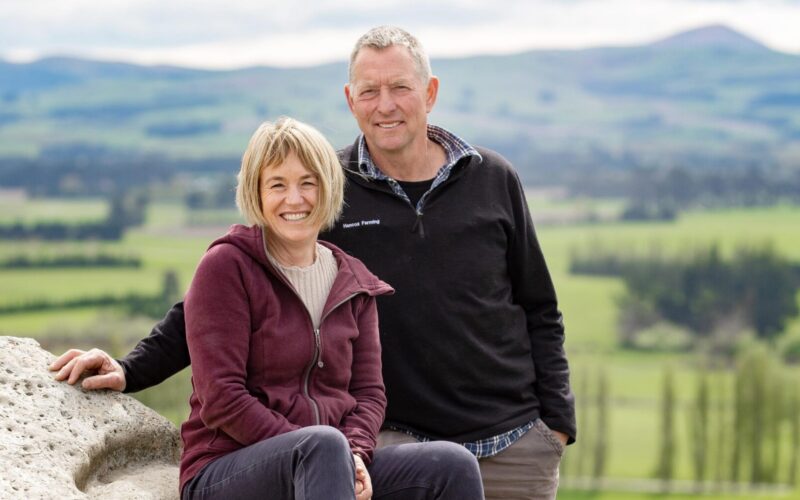Spending cuts are under way on Nelson and Fiona Hancox’s West Otago farms as they try to arrest an expected 10% increase in farm working expenses.
Planned fencing will be cut from 15km to 5km and fertiliser will be applied to 1500ha instead of 3500ha with more lime used.
Countering those costs are forecasts that meat prices could increase due to a shortage of lamb and that global consumers will have some insulation from the effects of inflation.
Hancox expects his farm working expenses to rise from 55% of gross farm income to 65%, but that could be tempered by higher income from lamb and a more favourable season.
A dry summer and autumn forced him to sell lambs as store and while he is shopping for more favourable conditions next season, they are making changes to become more self-sufficient.
He said dry seasons seem to be more frequent and they have sown 100ha of summer crops to become more resilient and to boost lamb weight.
Rising fuel costs is likely to reduce inter-island, the option of trucking store lambs between islands.
“We need to mitigate and de-risk our business,” Hancox said.
“It will mean a drop of 1000 stock units to do it, but we have calculated what it will mean and feel it is worthwhile to do.”
He said while he saved $18,000 and secured supplies by ordering this season’s fertiliser early, he will face higher costs this year.
One new cost is the $6000 for consent from the Otago Regional Council to grow winter crops on his three farms on slopes over 10 degrees.
Mokoreta farmer Matt McRae said once prices such as wages and fertiliser start to rise, they are unlikely to fall.
“It’s like a rising tide,” McRae said.
He is questioning the necessity of all his costs, which includes undertaking whole-of-farm soil testing.
McRae said with the global population increasing, food production needs to be valued yet policies such as intensive winter grazing are working against producers.
Policies also ignore the reality NZ food production has the lowest international carbon footprint.
“We aren’t making as much money or polluting as much as we’re made out to be,” he said.
Read more articles in the Food Security special report series here.






